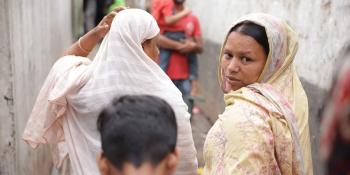Sumi has lived in Duaripara, an informal settlement in northwest Dhaka, Bangladesh, since she was a child. Trained in basic masonry, carpentry skills and first aid, she also learned how to put out fires — a hazard in densely populated communities such as Duaripara. Firefighters have reported delays in responding to fires in informal settlements due to the narrow streets and lack of hydrants or other sources of water to extinguish the fire.
When a fire broke out in March 2023, Sumi and fellow members of the community water, sanitation and hygiene committee or CWC sprang into action. Not only did they help to evacuate people, but they also took the initiative to collect rice, potatoes, and lentils as well as clothing for people affected by the fire. Sumi has helped to lead the kind of community participation and innovative solutions that Habitat for Humanity seeks to scale up through policy and systems change through the newly launched Home Equals global advocacy campaign.
According to Sumi, nobody in the community uses fire extinguishers, which are expensive. She wishes more residents were trained in fire safety. “When a fire breaks out in our community, only a few people come forward to help.”
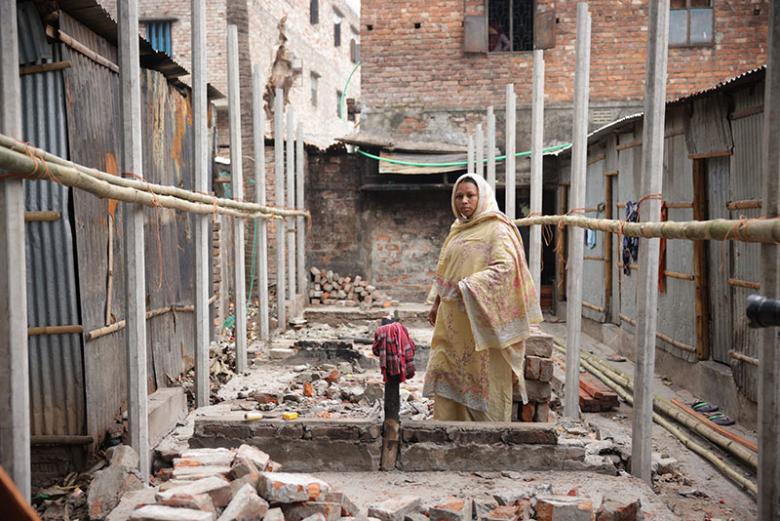
Sumi visits the site where five houses in Duaripara informal settlement were razed in a fire in March 2023. Photos: Habitat for Humanity/Raymond McCrea Jones.
“From a young age, I was brought up to help other people in need. It’s a matter of conscience,” she says.
As garbage strewn around the narrow streets are a trip hazard for pregnant women, Sumi encourages people in her community to dispose of waste properly. She also teaches them how to turn vegetable and fruit scraps into fertilizer for plants.
In addition, Sumi conducts monthly training sessions for 15 to 20 people to improve hygiene standards, organizes community cleaning once a month, and monitors the state of water and sanitation facilities in her community, along with other CWC members.
Each day, after she is done with household chores, Sumi and other CWC members walk around the community to see how they can help others. Often, Sumi will pick up garbage that clogs the drainage system. She also mediates marital conflicts and advises parents about adolescents’ behavioral changes. “I like that people come to me with their problems. If I can solve the problem, I feel happy for the community and myself.”
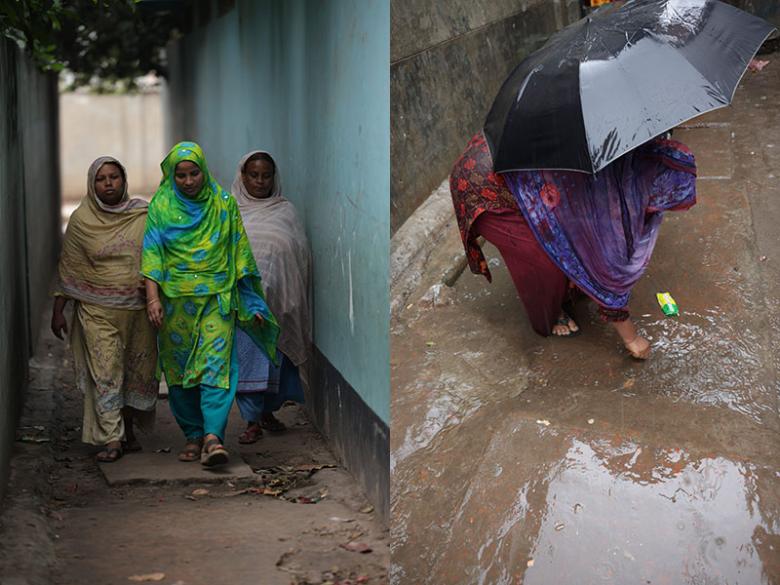
Sumi (far left) walks around Duaripara with other members of the community water, sanitation and hygiene committee to offer help. Occasionally, she also unclogs drains (far right) when it rains.
She has her own challenges. “I have a water supply problem in my house. When there is no water, the electricity bill suddenly rises so I get water once a week. I am suffering from it, and I feel sad.” She buys filtered water for her family, refilling four times a month and paying a total of 500 taka (almost US$5). This is a more affordable option compared to the 20,000-taka fee for connection to a government water line and paying by the meter according to the amount used. She also grapples with the lack of gas supply. “Sometimes, there is no gas to cook. I have to wake up at 4 a.m. to cook meals for the whole day. The following night, I (have to) cook again; it’s a big pain.”
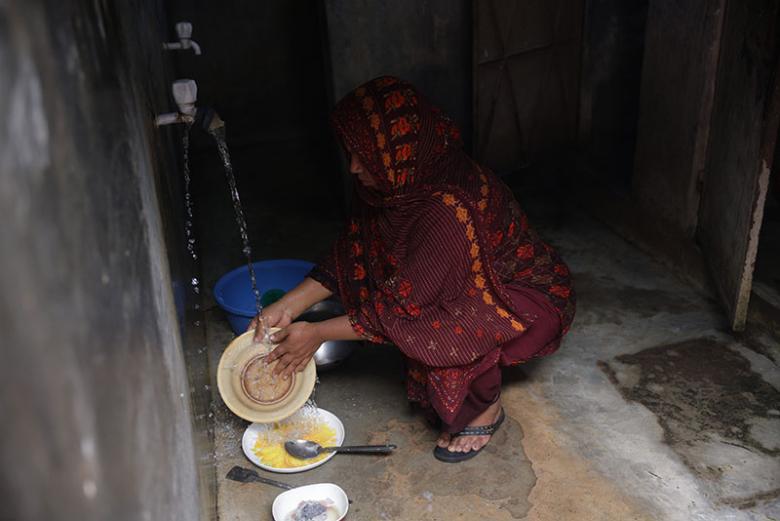
Washing up after meals is easy when there is water. But it’s not always the case for Sumi.
Despite the challenges, Sumi appreciates that her community is comprised of people from different places. “People in our community are active. They have love and fellowship. They stay together and share each other’s suffering.”
Together with other members of the CWC, Sumi is active in identifying problems such as child labor and child marriage. They also help residents access basic services. “When there is no water in the line, we discuss how to contact WASA (Water Supply and Sewerage Authority) and bring water.” As a committee, the group is heard by the officials at WASA. “So, we don’t go alone because they don’t listen. If we go together, they listen to us and do something.”
“We are trying to get water for everyone. With all the committee members, we are going ahead to make this area good, clean, and safe,” Sumi says.
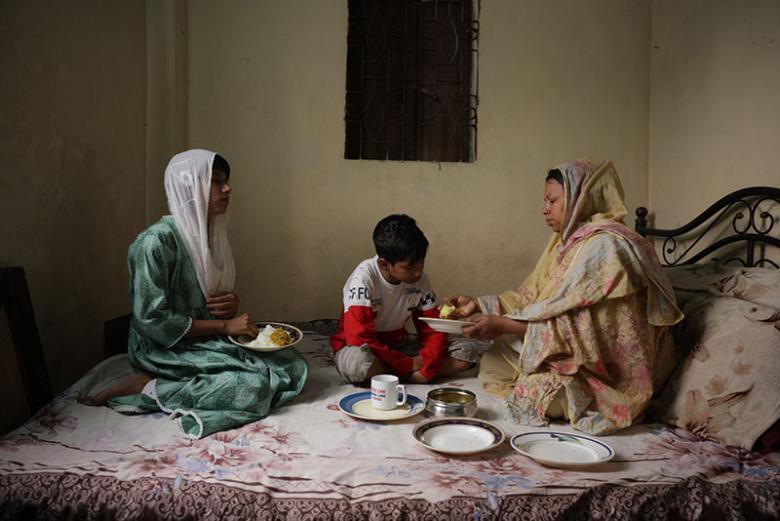
Sumi likes the peaceful time when she has lunch with her daughter Chadni and her son Jim.
In Sumi’s house, a narrow staircase leads to a small loft area where she has meals with her daughter Chadni, 17, and her son Jim, 10. “The heart of my home is my son and daughter. When they return home, we have lunch together...I feel good and peaceful,” Sumi says. While she loves staying in Duaripara, she would send her children to a better place to live if she had a choice.
